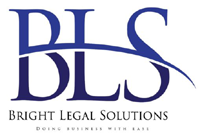In Thailand, corporate tax is a tax directly levied on a juristic company, or a partnership that has been established under the Thai or foreign law. Corporate tax is known as Corporate Income Tax. Personal tax, on the other hand, is a direct tax levied on an income of a person. A person, over here, refers to an ordinary partnership, an individual, a non-juristic body of a person, a deceased person, and an undivided estate.Our financial and tax experts at BLS, help you with every required advice for every type of corporate as well as personal income tax concerns.
Thailand Tax Overview
Taxes are imposed at both, the national as well as the local level in Thailand. Most of the tax collections are administered by the Ministry of Finance. There are different taxes that exist in Thailand. These include Personal Income Tax, Corporate Income Tax, Stamp duty, and Value Added Tax or specific business taxes. Besides the Ministry of Finance, taxes are collected by various other authorities including the Customs Department, Excise Department, and the local authorities. While import and export duties are collected by the Customs Department, collecting the excise tax is the responsibility of the excise department. On the other hand, property and municipal taxes are collected by the concerned local authorities. Now, let us take a look at the Corporate Income Tax and the Personal Income Tax in Thailand.
Corporate Tax:
Corporate Income Tax (CIT), is a direct tax levied on a juristic company or a partnership, established under the Thai law or foreign law, and which conducts business operations in Thailand, andearns certain types of revenue out of it in Thailand. The term juristic company or partnership, referred to as a company, is a limited company, a limited partnership, or a registered ordinary partnership, incorporated in accordance with the Thai law or foreign law. It could also be an association or a foundation that conducts a revenue earning business in Thailand. Besides these, tax-paying organizations include joint ventures, or trading and profit-generating businesses conducted by a foreign government, or the foreign government’s agency, or by a juristic body incorporated under a foreign law. Thai companies and foreign companies operating abusiness in Thailand must submit tax returns and payments twice in a year.
Personal Income Tax:
PIT is a direct tax levied on the income of a person. The term person refers to a particular person, the non-juristic body of a person, an ordinary partnership, a deceased person and an undivided state. An individual must compute the tax, file a tax return, and pay the tax, if any, on an annual basis.
BLS Accounting Services in Thailand
We also offer a wide range of accounting services to simplify accounting operations for organizations from diverse business areas. Our services are accurate and completely compliant to the respective law/s of the country. Our accounting services include the following.
- Monthly reports (Balance Sheet, P&L)
- Value Added Tax (PP 30)
- Check preparation
- Annual Tax Return (PND 50)
- Withholding Tax (PND 3, 53)
- Withholding Tax Return (PND 54)
- Mid-Year Tax Return (PND 51)
- Payment transfers
- Annual Financial Statement submission to Thai government
- Record accounting transactions
- Bank accounting set up
- Supporting schedules for financial statements
BLS Payroll Services in Thailand
Considering the complexities involved in handling payroll operations, and from the viewpoint of helping organizations with the most compliant, accurate and timely payroll functions, we offer the best payroll services in Thailand. Our range of services makes us one of the most comprehensive payroll solutions providers in Thailand. Here’s the list of our payroll services.
- Report distribution
- Preparing monthly pay slips.
- Calculating and banking employee net salary.
- Withholding tax (PND 1)
- Monthly payroll calculations
- Electronic reporting
- Social Security (SPS 1-10)
- Withholding Tax Certificate (BIS 50)
- Process and managing Provident Fund
- Handling workman’s compensation
- Making payments to government agencies
For more details and an appropriate advice, connect with our experts.
